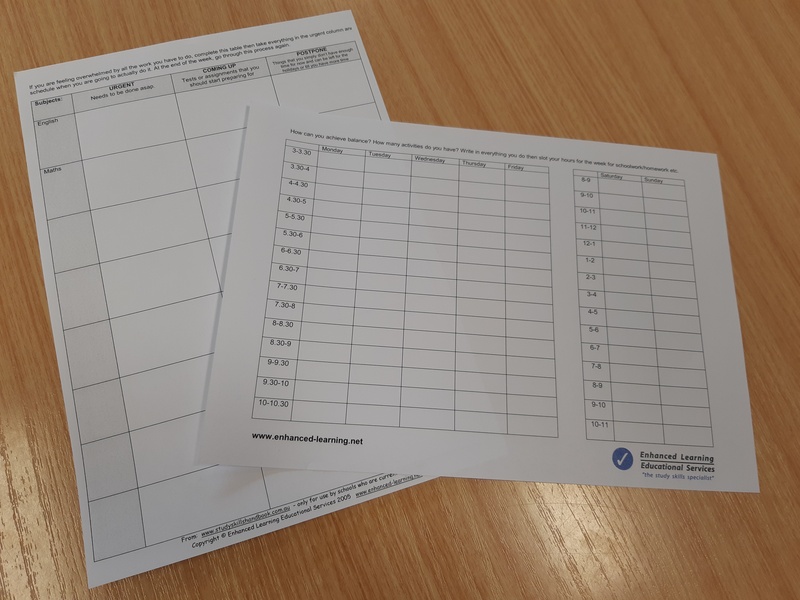StudySkills@TheLibrary
When you say that you have a bad memory, it usually means that you do not retain the information into your memory in an effective way. Memory is really a ‘process’ as opposed to a ‘thing’ in your head that you are born with.

Study planners are crucial
Rather than ‘improving your memory’, you want to improve the process of memory creation to ensure that retrieval goes smoothly! The reason why many students do not retain what they are learning is that the way they are studying only gets the information as far as their short term memory, so before long it is forgotten instead of being implanted into long term memory.
The first stage in improving retention of information is to try and find ways to make what you are learning INTERESTING to you, EMOTIONAL and ENJOYABLE. If this isn’t possible, at least create the firm INTENTION to remember the information. It is all about your approach to what you are learning.
The next step in memory creation is the encoding process. To improve in this area, you need to improve:
- CONCENTRATION AND FOCUS: make notes about what you are learning, study using techniques that suit your learning style and study when you are most alert.
- ORGANISATION OF MATERIAL: make brain friendly notes (lists, highlighting, categories, grouping, graphics etc)
- MAKING ASSOCIATIONS AND LINKS between the new material and previously learned material.
Next stage in the memory process is facilitating the storage of memories. You can improve the way memories are stored by ensuring you BREAK YOUR STUDY BLOCKS UP with at least a few minutes break every half hour (this gives the brain a chance to absorb and file that chunk of content) and CHUNK DOWN the information to be learnt into manageable chunks. Getting enough SLEEP is also essential as fundamental memory processes take place during sleep. The other thing that is really important in this stage is REPETITION AND REGULAR REVIEW. Each time a review takes place, the brain fires all the neurons connected to that memory. The more regularly this happens, the stronger the connections between the neurons becomes, and the more intense and powerful the memory is.
So in summary, the top three things to improve the process of creating powerful memories are:
i) focus, positive attitude and intention to remember are essential (reading something half-heartedly while bored pretty much guarantees it won’t be retained)
ii) an active approach to learning where you are ‘doing’ (making notes, testing yourself using a wide range of study techniques) rather than just ‘reading’
iii) repetition and constant review of the material over a period of time.
The College Library